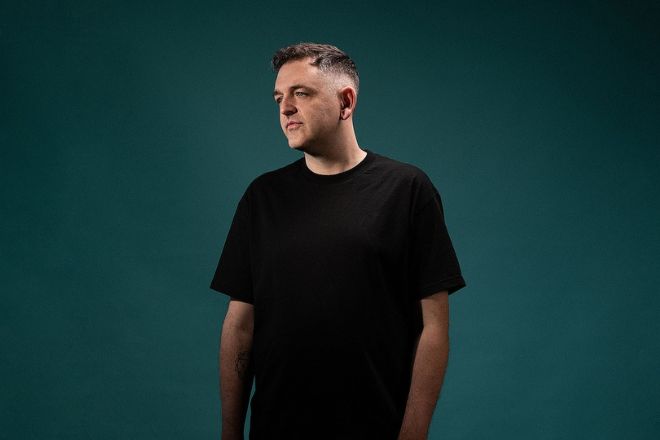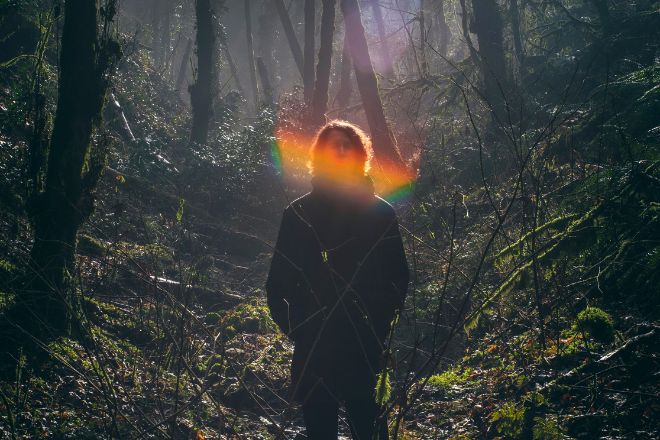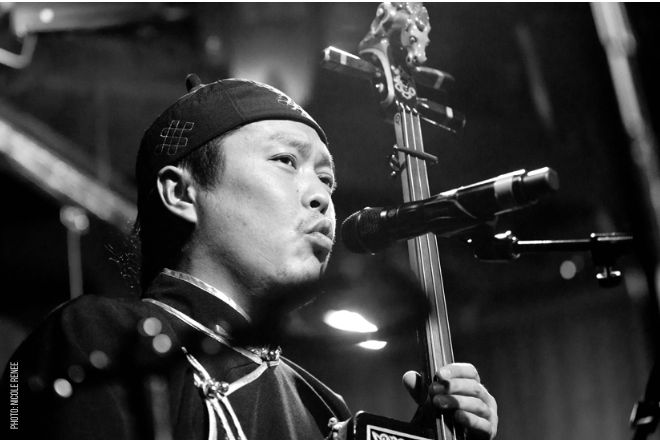FIELD RECORDING, LOCATED SOUND AND ECOACOUSTICS WITH JANA WINDEREN, FRANCISCO LOPEZ, RAQUEL CASTRO, ALICE ELDRIDGE AND ZACH POFF
STARTS 2025-02-16 | SOLD OUT WAITING LIST IS HERE
SIMILAR COURSES:STARTS 2025-02-16 | SOLD OUT WAITING LIST IS HERE

THE BASICS
- 5 videoconference sessions
- Small, intimate group allowing for a tailored and personal workshop
- Active communications within the group between sessions to share ideas, collaborate and keep your project moving
- Individual feedback sessions and tailored support

HIGHLIGHTS
- Work closely with five acclaimed artists, scientists and researchers over a series of five videochat workshops
- Receive assignments to work on where you are, in between sessions
- Explore the sonic ecosystems where you are, and develop creative responses to your findings
- Get individual feedback on your work
- Further support after the workshop, in the form of performance, touring, recording, release and broadcast opportunities

BOOK NOW
The workshop will kick off with Jana Winderen's session, entitled "Open Your Window". You'll be encouraged to start observing, recording, and listening to your "neighbours" - the birds, mammals and insects living in close proximity to you, wherever you are, a couple of weeks before the workshop starts. You might observe a crow, a magpie, sparrow, goldfinch, spider (there are 600 species in Norway alone), a fly, a rat, a fox - watch and listen to them over that extended period, read about them, think about them. When Jana's session arrives, she will offer a presentation of her work on observing, recording and listening, and we'll discuss the results of our own observations. After the session, we will continue to observe and record our "neighbours", working towards production of a collective body or recordings for release on the CAMP Editions label.
Jana Winderen is an artist based in Norway with a background in mathematics, chemistry and fish ecology. Her practice pays particular attention to audio environments and to creatures which are hard for humans to access, both physically and aurally, deep under water, inside ice or in frequency ranges inaudible to the human ear. Her activities include site-specific and spatial audio installations and concerts, which have been exhibited and performed internationally in major institutions and public spaces. Recent work includes Absent Voices for Haus der Kunst in Munich, The River for Natural History Museum in London, The Art of Listening: Underwater at Lenfest Center for the Arts, Colombia University, New York, Listening through the Dead Zones for IHME, Helsinki, The Art of Listening: Underwater for Audemar Piguet at Art Basel, Miami, Rising Tide at Kunstnernes Hus in Oslo, Listening with Carp for Now is the Time in Wuzhen, Through the Bones for Thailand Art Biennale in Krabi, bára for TBA21_Academy, Spring Bloom in the Marginal Ice Zone for Sonic Acts, Dive in Park Avenue Tunnel in New York and Ultrafield for MoMA, New York. In 2011 she won the Golden Nica at Ars Electronica for Digital Musics & Sound Art. She releases her audio-visual work on Touch (UK).
Francisco Lopez will offer his unique perspective on located sound - in his own words, "a lifetime experience of environmental recording, field listening and 'wilderness composition' has informed my perspective of sounds as self-sufficient 'things-by-themselves' – entities at the same ontological level than so-called 'sources'. This is not at all an abstraction but rather the opposite: a non-representational penetration into the rabbit hole of the concrete real. And with it, a dramatic expansion of the unnamed things in the world."
Francisco Lopez is internationally recognized as one of the main figures in the realm of experimental music and audio art. He is also a Ph.D. Ecosystem Biologist, with extensive teaching and research experience as professor in several universities in Spain, Africa and Latin America. His experience in the field of sound creation and work with environmental recordings covers a period of more than forty years, during which he has developed an impressive sound universe that is completely personal and iconoclastic and based on a profound listening to the world. His extensive catalogue of sound pieces -with live and studio collaborations, as well as projects curated and directed, with more than a thousand artists- has been released by over 450 recording labels / publishers all over the world. Among other prizes, Lopez has been awarded five times with honorary mentions at the prestigious Ars Electronica Festival (Austria) and is the recipient of a Qwartz Award (France) for best sound anthology. He has realized hundreds of environmental recording projects, commissions, live performances, sound installations and workshops, as well as research in entomology and ecosystem dynamics, in over seventy countries of the six continents.
Moving into curatorial ground, Raquel Castro
Raquel Castro is a researcher, director and curator. Founder and director of the Lisboa Soa sound art festival and the international symposium Invisible Places, she holds a PhD in Communication and Arts by FCSH-UNL with the thesis "Contributions to an Analysis of the Soundscape: Sound, Space and Acoustic Identity". She is integrated researcher at CICANT and currently teaches "Archaeology and Soundscapes" at Universidade Lusófona, in Lisbon. Her activities as a researcher and curator resulted in documentaries such as Soundwalkers (2008) and SOA (2020), where interviews, art and sound environments combine to broaden awareness about sound and listening. SOA was exhibited by RTP2 and is currently streaming on Netflix. Castro has been curating internationally, namely the cycle of exhibitions "Sound Art in Public Spaces", presented in the following contexts: Wilde Westen (Belgium), November Music (Netherlands), Spor Festival (Denmark), Onassis Stegi (Greece) and Ultima Olso (Norway). In 2022, Castro founded the cultural association Sonora, with which she creates, plans and produces transdisciplinary projects in the intersection between art, science, ecology and sound. In her work, Raquel Castro seeks to create awareness of the relationship between sound and environment and, by extension, the social, cultural and ecological aspects that are revealed through the practice of listening.
Alice Eldridge
Alice Eldridge is a researcher and musician with an interest in how sound organises systems. Her work integrates ideas and methods from music, complexity and computer sciences, ecology and indigenous cosmovision to advance theory and methods in ecoacoustics for positive change. Alice is currently Professor of Sonic Systems at the University of Sussex where she is co-director of the Sussex Digital Humanities Lab, co-director of the Experimental Music Technology Lab and a fellow of the Sussex Sustainability Research Programme. Current and recently funded projects include development of novel acoustic methods for ecological assessment in terrestrial and marine environments, participatory action research for Ecuadorian Kichwa ecocultural heritage and creative soundscape interventions for European nature reconnection. Testament to her career indecision, she has appeared on various BBC TV and radio stations as a soundscape scientist and field recordist; on BBC radio 3 as a free jazz cellist; on BBC radio 6 as a contemporary chamber composer; and on BBC radio 1 as a pop bassist.
Finally, we close the series with Zach Poff
From this central point, each technique offers a potential route to worlds beyond human-centric listening:
 Contact Microphones: sonic microscopes hear the vibrations of objects instead of air.
Contact Microphones: sonic microscopes hear the vibrations of objects instead of air. Hydrophones: underwater microphones that reveal the largest singing cetaceans and the tiniest water beetles.
Hydrophones: underwater microphones that reveal the largest singing cetaceans and the tiniest water beetles. Ultrasound Devices: bat detectors and other techniques to hear pitches above the human hearing range.
Ultrasound Devices: bat detectors and other techniques to hear pitches above the human hearing range. RF Devices: electromagnetic coils to hear radio signals leaking from electronics, and large VLF antennas to hear the natural radio of Earth’s ionosphere
RF Devices: electromagnetic coils to hear radio signals leaking from electronics, and large VLF antennas to hear the natural radio of Earth’s ionosphere Optical Transducers: devices to translate flickering light into sound.
Optical Transducers: devices to translate flickering light into sound.Zach's session is intended for musicians, sound artists, ecoacoustics researchers, and curious listeners at all levels. Beginners will gain the practical knowledge to choose the best tools for their practice. More experienced recordists will learn fieldcraft techniques and context to use their existing tools to their fullest.
Zach Poff is a media artist, educator, and maker-of-things. His artwork is rooted in open systems that eschew individual authorship in favor of collaborative or generative models. His recent work employs unique sound tools to explore social and ecological relationships, whilst his algorithmic remixes of popular media uncover hidden subtexts lurking inside familiar forms. He considers his art-making, teaching, and software development to be contributions toward a culture of sharing & empathy, in direct opposition to commercial media’s cult of the individual. In 2015 he received a commission from Wave Farm Transmission Arts in Acra NY, to create Pond Station, a long-term outdoor sculpture that live-streams the underwater sounds of a pond to explore aural connections to the more-than-human. He has received awards from NYC Artist Corps, New York Foundation for the Arts, and Wave Farm. His work has been broadcast in the U.S. and internationally on WGXC FM, Radiophrenia (Scotland), Resonance FM (London), Kunstradio (Austria), ABC Radio (Australia) and at venues including Manifesta, Documenta, the Portland Biennial, ISEA 2008 (Singapore), Artists Space, Hallwalls Art Center, Armenian Center for Contemporary Experimental Art, and Polli Talu Art Center (Estonia).
WHERE AND WHEN?
This is an online course, but it involves realtime sessions and contact time with your tutor - it's not a "download these videos and watch them at your leisure" type of thing - it's a real workshop with live lectures, individual tuition, assignments and feedback sessions. We've tried to make this remote session as close as possible to the experience of an onsite workshop at CAMP. The course starts on 16/02/2025 and ends on 18/03/2025. The schedule for sessions is as follows (all times are CET):
- Session 1 - Jana Winderen: 16/02/2025, 16:00 - 19:00 CET
- Session 2 - Francisco Lopez: 22/02/2025, 16:00 - 18:00 CET
- Session 3 - Raquel Castro: 05/03/2025, 18:00 - 21:00 CET
- Session 5 - Zach Poff: 18/03/2025, 18:00 - 20:00 CET
- Session 4 - Alice Eldridge: 11/04/2025, 15:00 - 17:00 CET
HOW TO BOOK
To book your place on the course, click the button in the green section above. You won't pay anything right now - we'll send you a booking confirmation email with everything you need to know next. Your place is reserved without payment for three days.
You'll find a payment link in the booking confirmation email - follow the link to make a payment (either in full, or the first payment of a 2 month payment plan). In the latter case, a monthly payment plan will be put in place, so your card will be charged 1/2 of the fee today, and 1/2 each month (on the same day) for an additional 1 months. All card payments are handled by Stripe, and are extremely secure. We don't store any card data ourselves - all of this is handled securely off-site by Stripe. If you have a discount or grant code, you will be able to add it when you follow the payment link in your confirmation email.
Once you've made a payment, you'll receive another email containing your receipt, links to resources, contact information and access to our group chat to discuss the workshop with other participants.
IMPORTANT: BY SIGNING UP TO A COURSE (OR A PAYMENT SPLIT), YOU AGREE TO THE TERMS
STUDENT LEVEL: ALL WELCOME
EQUIPMENT REQUIRED: A DEVICE CAPABLE OF ACCESSING ZOOM MEETINGS; FIELD RECORDING EQUIPMENT, HOWEVER BASIC, IS USEFUL.
POST-COURSE SUPPORT: RELEASE OPPORTUNITIES ON OUR IN-HOUSE LABELS, BROADCAST OPPORTUNITIES ON CAMP RADIO, PERFORMANCE AND TOURING OPPORTUNITIES AT FUSE ART SPACE AND ACROSS OUR NETWORK OF PARTNER VENUES.
EQUIPMENT REQUIRED: A DEVICE CAPABLE OF ACCESSING ZOOM MEETINGS; FIELD RECORDING EQUIPMENT, HOWEVER BASIC, IS USEFUL.
POST-COURSE SUPPORT: RELEASE OPPORTUNITIES ON OUR IN-HOUSE LABELS, BROADCAST OPPORTUNITIES ON CAMP RADIO, PERFORMANCE AND TOURING OPPORTUNITIES AT FUSE ART SPACE AND ACROSS OUR NETWORK OF PARTNER VENUES.



